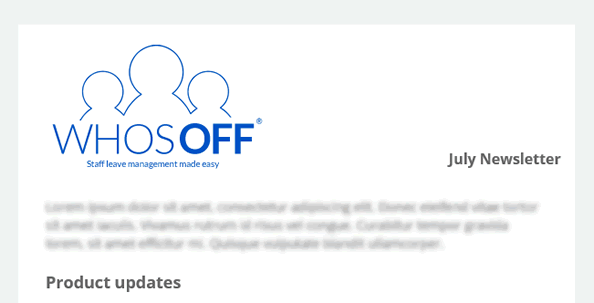
We’ve all had moments when we wished we could get back into bed, rather than go to work. But what if you gave your team members permission to crawl under the covers? To take some spur of the moment personal time when they’re not feeling very productive?
The concept of the ‘duvet day’ originated in the USA, but it’s now gained global popularity. And many firms are using it as both a perk to attract new employees, and a way to keep staff energised and motivated...
What is a duvet day – and why do people take them?
If you’re unfamiliar with the term, duvet days are a type of last-minute time off that some employees offer to staff. The concept was pioneered in North America in the 1990s as a way to tackle employee burnout.
Companies can choose to offer either unlimited personal time or a set number of duvet days per year, which are separate from employees’ main annual leave entitlement, time off in lieu (TOIL) accruement and statutory sick leave.
Duvet days are typically used when staff want to focus on personal matters, or they’re just feeling too run down to work productively. For example, if there’s a sudden snowfall, people might claim a duvet day to go out and play with their children. Or if you’ve been working on a big presentation, colleagues might take time off after the big pitch to catch up on some sleep.
What are the benefits of offering duvet days?
There are many reasons that firms choose to include duvet days in their perks package, starting with recruitment. 65% of UK professionals claim they’re more likely to accept a job offer if their contract includes duvet days, so it can prove a key tool in attracting top talent.
Duvet days are also a good tool for retaining staff and looking after their wellbeing. UK workers put in two billion hours of unpaid overtime a year, which can lead to rising stress and fatigue. Offering them an option for spur of the moment time off helps to redress this balance, as rested and reenergised employees are likely to perform better at their job.
Including a duvet day allowance can also help to lower your sick leave rates. If colleagues can legitimately take time off when they’re not ‘in the zone’, they are less like to pull a sickie. And longer term, helping team members to manage their physical and mental health by achieving a better work/life balance can help to prevent ongoing issues and chronic illnesses that cause staff to need much longer periods of absence.
Why doesn’t every employer offer duvet days to staff?
While the advantages of spontaneous personal leave are evident, there are some companies that choose not to offer duvet days to staff members. Why?
On a cultural level, employers can worry that duvet days encourage unauthorised absences. But as we’ve discussed, offering short-term time off can help to reduce longer periods of sick leave. They can also be very effective as part of a wider employee wellbeing package, helping employees to manage the stress and anxiety that comes with 24/7 online availability.
On a practical level, employers are concerned that spur of the moment leave can impact company operations and workload. And there’s an element of truth to this. If it’s not tracked and managed efficiently, last-minute time off can cause huge logistical problems. Especially if your company is already struggling to manage standard time off, such as annual leave and TOIL.
But holiday planning issues can be solved easily through staff leave management software, which takes the time and effort out of coordinating employee absences.
Can leave management software factor-in duvet days?

Many firms think an online holiday planner only handles annual leave, but a good piece of software can do so much more. The leading leave management solutions on the market – like WhosOff – can coordinate multiple types of time off, from managing overtime and medical appointments to sick leave and duvet days.
Moreover, leave planning software will help your business to track duvet days accurately, so nobody takes more than they’re allowed, or chooses an inconvenient day to go back to bed. Every employee can access the digital holiday calendar, to check whether managers and close colleagues are in the office before taking time off.
Ultimately, it’s up to your individual business whether you include duvet days in your list of employee perks. But WhosOff can help you manage extra days off effectively, so you enjoy the benefits of well-rested staff, with peace of mind that the holiday calendar is still under control.
If you’re interested in tracking duvet days or other types of leave online, start your free WhosOff trial to explore our easy-to-use staff management software.
Photo by Vlada Kapovich of Pexels.com

